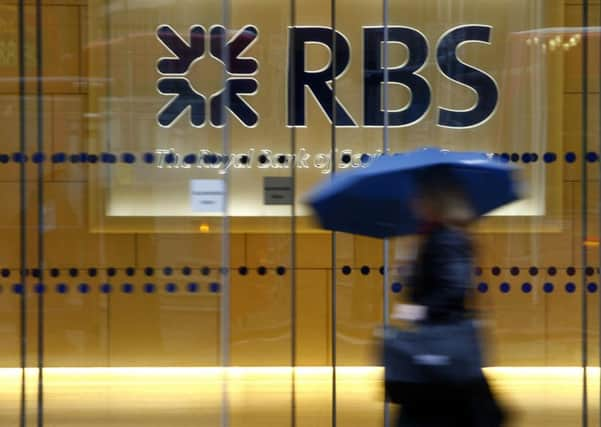Greg Wright: There are still unanswered questions a decade after banks took us to the brink


They should form the basis for a tribunal that will finally shed light on an era which saw businesses destroyed, marriages collapse and some victims pushed to the brink of suicide.
Many of Britain’s big banks have been rocked by scandals ranging from the manipulation of foreign exchanges to the mis-selling of complex interest-rate hedging products. This was embarrassing for the banks and a living hell for victims who had placed their trust in them.
Advertisement
Hide AdAdvertisement
Hide AdPoliticians and business pressure groups have been exasperated by the slow-movement of the wheels of justice. The All Party Parliamentary Group on Fair Business Banking (APPG) has said we need a truly independent tribunal to rebuild the reputation of the banking sector. The current regulator – the Financial Conduct Authority – has faced withering criticism from the MPs who have questioned its ability to defend consumers and small firms.
The FCA has been attacked by MPs for its failure to publish the full report into the alleged mistreatment of small businesses at Royal Bank of Scotland’s global restructuring group (GRG).
A leaked copy of this report came into the hands of the BBC, and MPs were, unsurprisingly, keen to read it as well. Taxpayers still hold a 70 per cent stake in RBS, so we have a right to see every word. However, the FCA has declined to release the report in full, almost four years after it was commissioned.
The Treasury Select Committee has huffed and puffed ineffectually in a bid to secure full disclosure. There was a partial victory when the FCA agreed to a proposal from the committee to appoint a legal adviser, who would compare the regulator’s summary with the underlying report into RBS’s restructuring unit.
Advertisement
Hide AdAdvertisement
Hide AdThe move came after the committee wrote to FCA chief executive Andrew Bailey threatening to use its “formal powers” to demand publication of the leaked report if its request was denied.
Mr Bailey agreed to give the summary and full report to the legal adviser to assess whether it is a “fair and balanced summary”. The FCA has refused the committee’s demands to publish the report in full, claiming it would reveal confidential information.
When the summary was published, it did not bring closure to anyone. The FCA said it may still take action against RBS despite dismissing “serious allegations” about how the lender treated small business customers.
The FCA said it was investigating whether there was any basis for further action. In its report, the FCA said it had pinpointed “significant concerns” about how small business customers were treated by the bank.
Advertisement
Hide AdAdvertisement
Hide AdIt said RBS had failed to support firms in a manner consistent with good turnaround practice; had placed an undue focus on pricing increases and debt reduction without considering the long-term viability of customers and had failed to identify customer complaints and handle those complaints fairly.
RBS said it was pleased the most serious allegations have not been upheld, and had set aside £400m to tackle complaints and compensation. It said £115m had been paid out to small businesses claiming mistreatment through an “automatic refund of complex fees”. It added that 939 complaints had also been lodged with a process overseen by retired High Court judge Sir William Blackburne.
The culture, structure and way RBS operates today have all changed fundamentally since the period under review, said the CEO Ross McEwan.
Mike Cherry, the Federation of Small Businesses national chairman, still wants to get his hands on this report because some of his members are desperate for compensation. He said: “The summary states that there was a systematic failure to manage the conflicts of interest inherent in the turnaround division.
Advertisement
Hide AdAdvertisement
Hide Ad“It surely follows that we must be able to see the full report in future in order to see how that systematic failure happened and who was responsible.”
The FCA is funded entirely by the firms it regulates. Although it is also accountable to the Treasury and Parliament, the saga over the GRG report shows how little influence our MPs have.
So it’s time to place plans for a truth and reconciliation tribunal under the nose of the Chancellor Philip Hammond.
Here’s how it could work. The Chancellor should establish a tribunal, paid for and accountable to taxpayers and presided over by a judge, to tie up every loose end from the financial crash. Witnesses would be called to give evidence under oath and a rigid time-scale would be set to rectify grievances. Its funding mechanism would mean that taxpayers’ interests would be paramount.
Advertisement
Hide AdAdvertisement
Hide AdA decade after the banks brought our economy to the brink of catastrophe, there are still unanswered questions over who was to blame. It’s time for the Government to create a tribunal that will put the victims first and finally close one of the darkest chapters in British corporate history.
Greg Wright is deputy business editor of The Yorkshire Post.